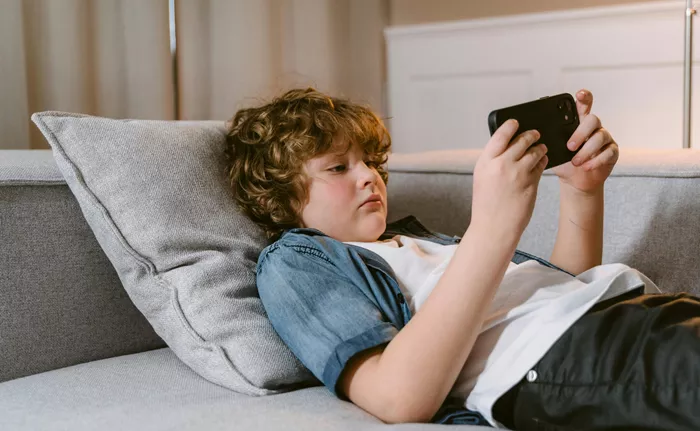A new U.S. study has found that children who become addicted to social media, mobile phones, or video games may face a higher risk of suicidal thoughts and behaviors.
The research followed more than 4,200 kids, starting at age 10, for four years. Experts say it’s not just about how much time kids spend on screens — it’s how they use them that matters most.
Published in the journal JAMA, the study was led by Dr. Yunyu Xiao of Weill Cornell Medicine. The team found that nearly one-third of kids showed signs of growing addiction to their phones or social media by age 11. These children often had trouble stopping, felt distressed when not using devices, and showed other signs of compulsive behavior.
Children who showed addictive screen use — rather than just high screen time — were more likely to report suicidal thoughts or attempts. This includes kids who played video games excessively or constantly checked social media and phones.
“Addictive use seems to have a stronger effect on mental health than screen time alone,” Dr. Xiao explained.
What the Study Looked At
The researchers followed 4,285 children from across the U.S. using data from the Adolescent Brain Cognitive Development (ABCD) study. They analyzed how kids used screens and tracked changes over time. Screen use was grouped into three types:
- Social media
- Mobile phones
- Video games
They then looked at how these behaviors related to mental health over a 4-year period.
Key findings:
- 5.1% of the children reported suicidal behaviors.
- 17.9% said they had suicidal thoughts.
- About 30–40% of kids went from low to high addiction risk during the study.
Children who had increasing or high addiction scores for social media or phones were more likely to show signs of both internalizing problems (like depression and anxiety) and externalizing problems (like aggression and breaking rules).
📊 Main Results
Compared to children with low addiction risks, those with high or rising addictive screen habits had:
📱 Social Media
2.39× more likely to show suicidal behaviors (P<0.001)
1.51× more likely to have suicidal thoughts (P<0.001)
📞 Mobile Phones
2.17× more likely to show suicidal behaviors (P<0.001)
1.50× more likely to have suicidal thoughts (P<0.001)
🎮 Video Games
1.54× more likely to show suicidal behaviors (P=0.004)
1.53× more likely to have suicidal thoughts (P<0.001)
Interestingly, total screen time alone was not linked to suicidal thoughts or mental health problems. It was the addictive behaviors, like not being able to stop, that made the difference.
🧠 Why This Matters
Doctors and parents often worry about screen time. But this study suggests that how kids use screens is just as important — if not more important — than how long they use them. Children who feel out of control with screen use may need more support, even if their total screen time doesn’t seem extreme.
An editorial published with the study agreed. Dr. Jason Nagata of the University of California, San Francisco, wrote, “We need to focus not only on screen time, but on the behaviors that point to addiction.”
Now that experts know addiction patterns matter, they say the next step is to test intervention strategies. These might include:
- Therapy for kids with screen addiction
- Digital detox programs
- Support for families struggling with tech overuse
- Teaching healthy screen habits in schools
Dr. Xiao emphasized, “We need to test these solutions in real clinical trials to see what works.”
The study was funded by the National Institute of Mental Health, the American Foundation for Suicide Prevention, and Google.
Read more:
- Singapore Launches 24/7 Mental Health Helpline ‘Mindline 1771’
- 8 Reasons Antidepressants May Not Work for You
- Is Dieting Hurting Your Mental Health? New Research


